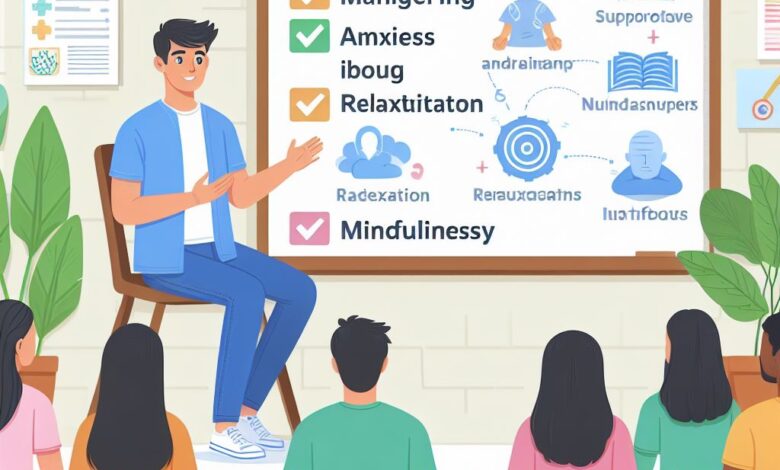Light at the End of the Tunnel: How Anxiety Coaching Can Help You

In today’s fast-paced world, the term ‘anxiety’ is no stranger to many. It’s a prevalent issue that affects individuals across all walks of life. Engaging with an anxiety coach can be a transformative step for those who find themselves frequently ensnared by feelings of anxiety, providing them with the tools they need to navigate their feelings more effectively. Anxiety coaching isn’t about offering a one-size-fits-all solution but rather about tailoring strategies to meet individual needs, helping people regain control over their lives.
Understanding Anxiety and Its Impacts
Anxiety is more than just feeling stressed or worried. It is a psychological and physiological state characterized by somatic, emotional, cognitive, and behavioral components that create feelings of fear, unease, and worry. These feelings can be mild or intense and may interfere with one’s daily activities. Anxiety can manifest in various forms such as generalized anxiety disorder, panic attacks, social anxiety, and many others, each having its unique challenges.
The impacts of prolonged anxiety are profound. It can lead to disrupted sleep, an inability to concentrate, rapid heartbeat, and excessive sweating. Over time, if left unchecked, anxiety can contribute to more severe health issues such as depression, heart disease, and other stress-related disorders. Recognizing these signs early and seeking appropriate help is crucial. Visit https://www.keepandshare.com/doc4/136182/exactly-how-to-locate-the-right-anxiousness-train-for-you
The Role of an Anxiety Coach
An anxiety coach works with individuals to identify the triggers and root causes of their anxiety. Unlike therapists who may delve into the deeper psychological underpinnings through long-term counseling, coaches focus on the present concerns and practical strategies for managing anxiety. The approach is action-oriented and solution-focused, aiming to empower individuals by equipping them with immediate, effective tools and techniques.
Coaching sessions typically involve setting personal goals, learning to manage reactions to anxiety-provoking situations, and building resilience. Through these sessions, individuals learn to dissect their fears logically and constructively, fostering a new mindset to face challenges with confidence rather than avoidance.
Techniques Employed in Anxiety Coaching
Anxiety coaches employ a variety of techniques to help manage and mitigate symptoms of anxiety. These can include:
- Cognitive Behavioral Techniques (CBT): This involves restructuring negative thought patterns to alter unwanted behavior patterns and emotional outcomes.
- Mindfulness and Meditation: These practices help individuals anchor themselves in the present moment, which can reduce the occurrence of worrisome thoughts about past or future events.
- Breathing Exercises: Proper breathing techniques can help control the physiological symptoms of anxiety, such as a rapid heartbeat and trembling.
- Lifestyle Adjustments: Coaches often recommend changes in diet, exercise, and sleep habits to support mental health.
Success Stories
Many who have engaged with anxiety coaching report significant improvements in their quality of life. For instance, individuals who once avoided social situations for fear of panic attacks have found new ways to engage with the world around them confidently. Others have learned to manage workplace stress effectively, preventing burnout and improving overall job satisfaction.
How to Get Started
Beginning with anxiety coaching involves a few key steps:
- Acknowledging the Need for Help: Recognizing that one’s anxiety is manageable and that seeking help is a sign of strength, not weakness.
- Finding the Right Coach: It’s important to work with a coach whose approach aligns with one’s personal goals and expectations.
- Committing to the Process: Engaging fully in the sessions and applying the techniques learned can lead to meaningful changes.
In Conclusion
Anxiety coaching offers a beacon of hope for those struggling with anxiety, guiding them through the complexities of their emotions and leading them towards a path of self-improvement and confidence. It’s not just about managing anxiety but transforming it into a catalyst for personal growth and success. For anyone feeling overwhelmed by their anxiety, remember, there is light at the end of the tunnel, and with the right guidance, it is possible to reach it and embrace a more peaceful life.


